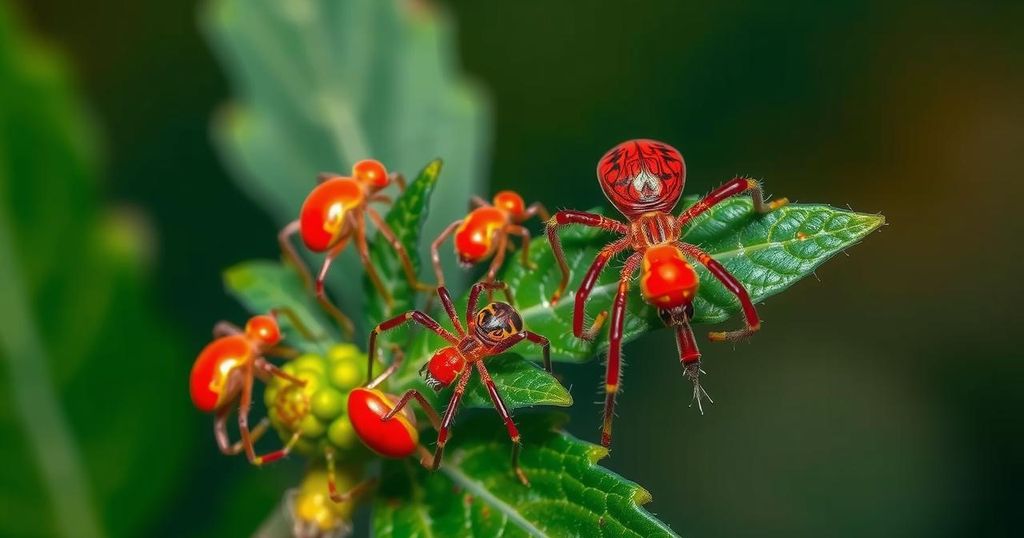Climate Change Fuels the Red Spider Mite Infestation in Libya
Red spider mites are wreaking havoc in Libya’s agricultural sector, especially in the northwestern regions, leading to devastating crop losses due to their sap-sucking behavior. Climate change has accelerated their proliferation, with decreasing rainfall and rising temperatures creating ideal conditions for the mites. Farmers and experts are calling attention to the limitations of current pesticide solutions, advocating for better pest management strategies and greater support for affected agricultural communities.
In Libya, the emergence of red spider mites—minute yet destructive pests exceeding less than half a millimeter—has resulted in significant agricultural losses, particularly in the northwestern regions. These mites thrive in dry conditions, consuming the sap from a diverse range of plants, leading to the wilting and dropping of leaves and fruits. Reports from farmers participating in the Wadi Al-Hai agricultural development project indicate that this invasive species has completely decimated numerous fruit and vegetable trees this year. Fathi Al-Tahir, a plant protection specialist from the Ministry of Agriculture and Animal Resources, observed that this pest was previously manageable, but due to climate changes impacting Libya, the situation has deteriorated alarmingly.
The red spider mite, commonly referred to as the two-spotted mite, exhibits rapid reproduction capabilities, especially during periods of elevated temperatures. Originating in North Africa in the mid-20th century through imported seedlings from Europe and Asia, these pests have expanded their reach significantly, affecting nations including Morocco, Algeria, Tunisia, and Egypt. The current crisis in Libya is exacerbated by climatic shifts, particularly the decrease in annual rainfall—which dropped from 270 mm to just 50 mm—as well as heightened temperatures and resultant dust storms that create optimal breeding conditions for the mites. The agricultural community has expressed growing concerns over the efficacy of available pesticides, which have shown signs of diminishing effectiveness against the mites, compelling experts to recommend integrated pest management strategies.
The plight of Libyan agriculture due to the red spider mite infestation highlights a confluence of climate change effects and agricultural challenges. With the rapid reproduction of these pests facilitated by unfavorable climatic conditions, and the inadequacy of pest control methods, there is an urgent need for strategic agricultural management and investment in pest management solutions to mitigate ongoing losses. There is a consensus among specialists that an emphasis on monitoring and systematic early detection is critical to combat this escalating problem, emphasizing the necessity for coordinated efforts across North Africa.
Original Source: www.eurasiareview.com




Post Comment